Ukraine Parliament Submits Bill Calling On Kyiv To Designate IRGC
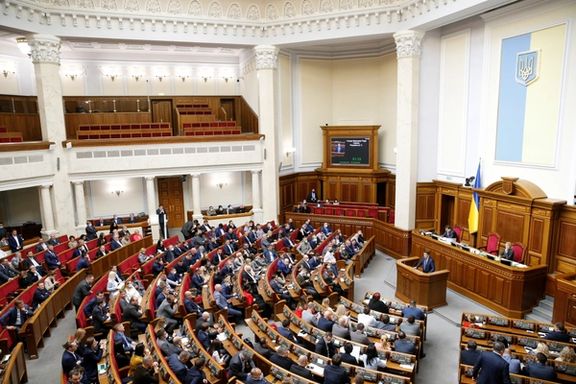
Ukrainian lawmakers presented a bill on Monday calling on Kyiv to designate Iran’s Revolutionary Guards as a terrorist organization.

Ukrainian lawmakers presented a bill on Monday calling on Kyiv to designate Iran’s Revolutionary Guards as a terrorist organization.
The bill is sponsored by dozens of Ukrainian parliamentarians, including the head of the Verkhovna Rada’s foreign affairs committee, Oleksandr Merezhko.
Israel and the US have been urging their allies to list the IRGC as a terrorist group. In mid-May, a bipartisan group of US congresspeople urged Washington’s allies– namely the UK, Australia, Canada, and India -- to swiftly act and officially join Washington in labeling the IRGC in its entirety.
The move in Ukraine has been lauded by several Israeli officials, such as the country’s ambassador to Ukraine, Michael Brodsky, who said, “Iran poses a clear threat to Ukraine, Israel, and the whole world.”
Washington designated the IRGC as a foreign terrorist group in 2019 under the Trump administration as relations with Iran plummeted following Washington’s withdrawal from the 2015 nuclear deal. Tehran responded at the time by designating the US military as a terrorist group.
The Ukrainian action came only a few days after the Swedish parliament unanimously voted to designate the IRGC. It swiftly followed the execution of Swedish-Iranian Habib Chaab (Asyud) which saw Sweden's Ministry of Foreign Affairs summon Iran's chargé d'affaires in protest of the execution, one of hundreds since the start of the year.
Earlier on Monday, the UK Defense Ministry said in an intelligence update that during May 2023, Russia launched over 300 Iranian Shahed suicide drones against Ukraine, describing it as“its most intense use of this weapon system to date.”
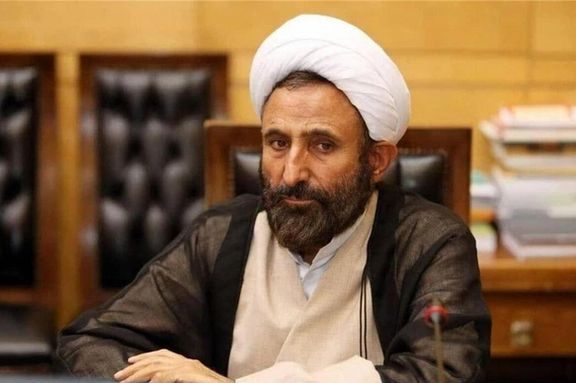
An Iranian member of parliament confirmed the recent hacking operation against government institutions and industrial centers in spite of the regime playing down the degree of compromise its systems underwent.
Hossein Jalali said: "Today, hackers enter the systems...steal our information and cause sabotage in some centers such as factories, organizations, and petrochemical facilities."
Advocating stronger preventive action, he added: “We must note that hackers enter any organization which is available; so, we have to see what the countries that are not attacked by hackers are doing. Hackers have not yet succeeded in penetrating China's systems. That’s because China has a national internet, so Iran's Internet should become like China."
The member of the Cultural Commission of the Iranian parliament also added that the hackers set some facilities on fire.
The hacktivist group ‘Uprising till Overthrow' claimed on May 29 that it breached 120 servers at the presidential office, getting access to internal communications, meetings minutes, President Ebrahim Raisi’s online conference platforms and about 1,300 computers inside the office.
In the cyberattack, the group is said to have gained access to “tens of thousands of confidential documents” but is releasing them in daily batches.
Earlier in May, the group, affiliated with the Albania-based opposition Mojahedin-e-Khalq (MEK) group -- People's Mojahedin Organization of Iran, hacked into the Islamic Republic’s foreign ministry servers, disabling 210 sites and online services and leaking another large batch of documents.
The US on Friday sanctioned Iran-based tech firm Arvan Cloud, its co-founders, and an affiliate UAE-based company over helping the regime censor the Internet in Iran.
The Iranian government has regularly used Internet restrictions and the throttling of Internet speeds to suppress dissent, surveil and punish Iranians for exercising their freedom of expression and assembly both online and offline.
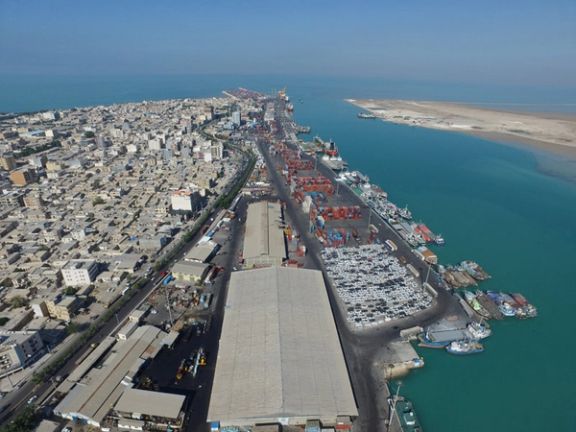
Based on Iran’s customs figures, the country’s non-oil exports to the European Union have dropped by 64% in the past 14 years.
These numbers show that Iran's non-oil exports to the European Union member countries have reached 725 million dollars in 2022, from about 2 billion in 2008.
According to the Navad-e Eqtesadi website, in addition to Britain's withdrawal from the European Union in 2020, the drop in Iran's exports to the European Union began after the withdrawal of the United States from the nuclear agreement in 2018.
Iran is also on FATF ‘blacklist’ for not adhering to several international financial conventions. The designation virtually cuts off the violators from the international banking system.
FATF is a Paris-based inter-state organization following the observance of international financial rules against money laundering and financing of terrorism.
European countries were supposed to trade with Iran through a special financial channel known as INSTEX, but the United Kingdom, France and Germany known as the E3 decided to shut down the mechanism, launched in 2019.
The INSTEX shareholders – Belgium, Denmark, Finland, France, Germany, the Netherlands, Norway, Spain, Sweden, and the UK – voted in favor of the dissolution at the extraordinary general assembly on March 9 considering Iran’s persistent refusal to engage with the facility.
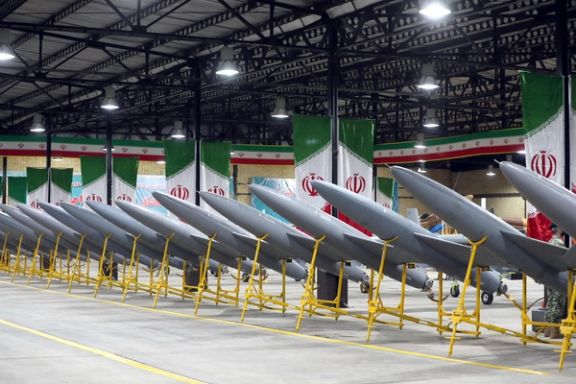
Documents seen by the UK’s Sky News suggest that Iran is profiteering from Russia’s war in Ukraine.
Overpriced ammunition shows the cash-strapped regime is able to charge over the going price as fellow sanctions-hit Russia runs low on supplies.
The 16 pages of top-secret documents, dated September 14, 2022, appears to be for samples of varying sizes of artillery and tank shells and rockets worth just over $1m.
A table on page five of the supplementary section covers samples of ammunition and weapons worth $741,860, including two 125mm barrels for the 2A46M gun of a T72 tank - each barrel priced at $85,750 - and two 122mm barrels for a D-30 Howitzer artillery piece - at a cost per barrel of $54,750.
The supplement also lists parts of ammunition to be sent, including 12 pieces respectively of the "shell body" and "brass case" of 122mm and 152mm ammunition.
The total for just 1,000 rounds adds up to $1,013,100, above market value. Colonel Hamish de Bretton-Gordon, a former army officer, told Sky News he thought this was expensive for such a relatively small quantity. "Let's hope the Iranians are ripping [Vladimir] Putin off,” he said.
Speaking to Sky News, Ukraine’s ambassador in the UK, Vadym Prystaiko, said: "That they're actually talking about simple stuff like the armaments, like ammunition, this is showing that the Russian position is quite difficult indeed."
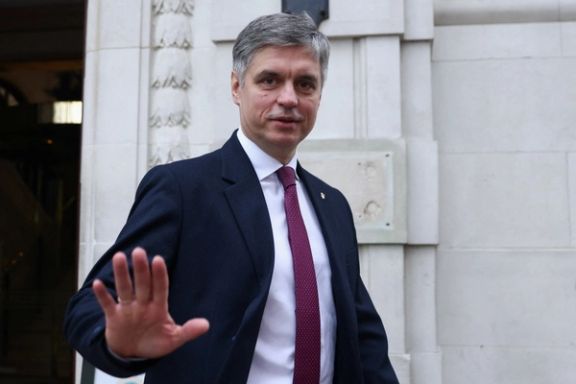
If true, it is further evidence of Iran’s supporting the war in Ukraine. Several global powers including the US and UK have issued sanctions on Iran for supplying Russia with drones on its war in Ukraine which have attacked civilians and civilian infrastructure.
Earlier this year, Sky News also reported allegations that Iran supplied large quantities of bullets and ammunition to Russia via cargo ships on the Caspian Sea in January. The transaction also dated back to September 2022.
Speaking to Sky News, Jack Watling, a senior research fellow at the Royal United Services Institute, who has spent a lot of time in Ukraine covering the war and is also an expert on Iran, said it would make "perfect sense" for Moscow and Tehran to agree contracts for arms sales. "There was nothing in there that struck me as making it incredible," Mr Watling said, referring to the documents.
"It seemed perfectly reasonable. The timing matched up with when we started to see certain transfers being made. And there were a lot of specific details, like, for example, the use of Swiss jurisdiction for arbitration in the case of a dispute between the parties that also looked quite credible in terms of previous Iranian practice."
Headlined "In the name of Allah", the contract "for the delivery of ammunition" is allegedly between the Ministry of Defence and Logistics of the Armed Forces of Iran and Russia's state military exporting and importing company, JSC Rosoboronexport. The agreement is identified by this number: NoIR-RU-2022 6001/1/NoP/2236478020960.
The document, drawn up in English, is split into sections - each with a numbered article - like any normal contract. Key details are listed like payment for the samples of ammunition - $1,013,100 (£813,000).
An internationally recognised set of regulations and terms that underpin trade deals, known as the INCOTERMS, or International Commercial Terms, are cited - making the covert sale of arms seem almost mundane.
One paragraph reads: "5.9 Right of ownership and risk of loss or damage of the subject of the contract shall be transferred from the supplier to the customer under terms and conditions of FOB/INCOTERMS 2010.”
This section on the transportation of the goods, also reveals the plan was to fly the ammunition samples to Russia from Iran. They must be delivered within 10 working days after payment.
Article eight sets out how the contract is governed by a private codification of international contract law known as the UNIDROIT Principles. These principles are approved by an inter-governmental organisation called the International Institute for the Unification of Private Law (UNIDROIT), which has more than 60 member states, including Iran and Russia but also the UK, the US and other Western allies.
The contract says any dispute that cannot be settled amicably would be dealt with by Swiss arbitration in Zurich, in spite of the fact that Switzerland has imposed sanctions on Iran for the provision of its deadly drones to Russia, wreaking havoc on Ukrainian cities.
Sky News has not been able to verify the authenticity of the documents independently and there has been no official government response from Iran or Russia.
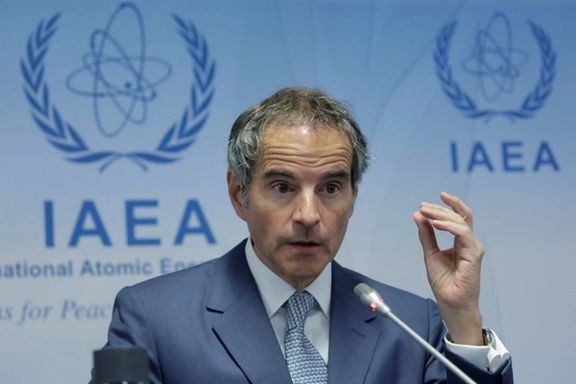
The UN nuclear watchdog, the IAEA, denied it had lowered its standards in an investigation into past Iran's activities after Israel accused it of "capitulation to Iranian pressure".
The dispute centres on the International Atomic Energy Agency's years-long investigation into the origin of uranium particles found at three undeclared Iranian sites, most of which appear to have been active around two decades ago.
"We never ever, never ever water down our standards. We stand by our standards, we apply our standards," IAEA Director-General Rafael Grossi told a news conference when asked about unusually strong criticism of his agency by Israeli Prime Minister Benjamin Netanyahu on Sunday.
US intelligence agencies and the IAEA believe Iran had a nuclear weapons program that it halted in 2003.
The IAEA has long denounced Iranian stonewalling of its investigation, which spurred its 35-nation Board of Governors to pass a resolution last year ordering Iran to comply immediately.
In a report to member states last week, Grossi said Iran had explained depleted uranium traces at one site.
The report, seen by Reuters, said Iran had provided a "possible explanation ... Therefore, the agency at this time has no additional questions on the depleted uranium particles detected at 'Marivan' or on the location, and the matter is no longer outstanding at this stage."
Netanyahu said Iran's explanation was "technically impossible", adding: "The agency's capitulation to Iranian pressure is a black stain on its record."
Grossi suggested on Monday that Iran has been dragging its feet over the re-installation of monitoring equipment that was removed at Tehran's behest a year ago.
"What needs to happen now is a sustained and uninterrupted process that leads to all the commitments contained in the Joint Statement being fulfilled without further delay," Grossi said in a statement to the IAEA board.
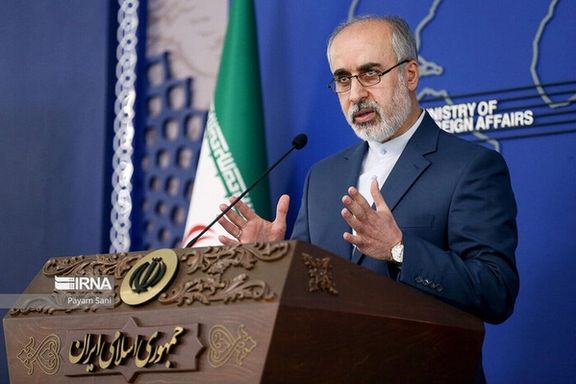
Iran has slammed the warning by the Republic of Azerbaijan over unnecessary trips to Iran.
The Ministry of Foreign Affairs of the Republic of Azerbaijan in a statement on Saturday asked its citizens not to travel to Iran.
Baku also asked its citizens who are now in Iran to observe security measures more than before.
In response, Nasser Kanaani, the spokesperson of Iran's Ministry of Foreign Affairs, said such a policy by Azerbaijan is the same as that of President of Israel, Isaac Herzog, who visited Baku last week.
It was an odd outburst since Israelis cannot and do not travel to Iran as the two countries have no diplomatic ties. Kanaani made a sharp verbal attack on Israel stating that the people of Azerbaijan should be scared of Israel, not Iran.
He further called the Israeli government a "fake regime" and its officials "child killers" in spite of Israel being named the region's only democracy according to Freedom House, while Iran continues to murder civilians for speaking out against the regime.
Tensions have been high between Iran and Azerbaijan since November 2022 when both sides accused each other of engaging in terrorism and espionage.
Azerbaijan closed its embassy in Tehran after an armed attack on its embassy in Tehran in January and then expelled four Iranian diplomats over what it called “provocative actions.
Tehran has also accused Baku of harboring Israeli intelligence and military elements that plan to use its territory in a possible attack against Iran’s nuclear facilities.